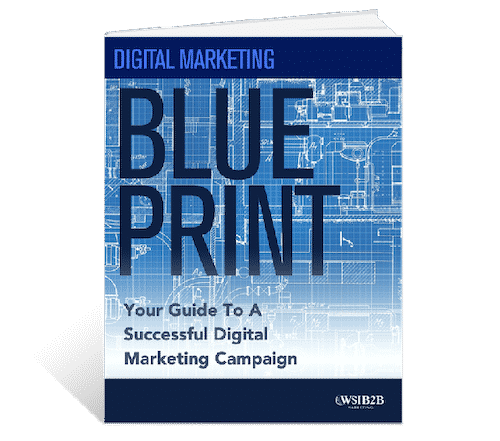Hard and Soft Digital Marketing ROI
November 4, 2021

We get asked a lot “What’s my Digital Marketing ROI going to be?”. For years, we have answered this question with almost total focus on the “hard ROI” based on searches per month, cost per click on Pay per Click, conversion rates, SEO difficulty, and sales per raw lead. These predictions were helpful and in most cases did provide a glimpse into what was possible for ROI on an online marketing investment.
The problem with predicting hard ROI is that even though there’s tons of data available, a lot of assumptions have to be made on each step of the process. It will never be an exact science because the marketing systems keep changing and competitors are not going to stand still for the status quo. Our advice on predicting hard ROI is to ask a few simple questions:
- Are people looking online for the products and services your company sells?
- How many searches per month are there in your market geography for the exact things your company sells?
- What’s your profit per sale?
- How many leads will it take to make a sale and is your sales team up to the challenge of selling to online generated leads?
- Do the math (profit from the sales expected -investment in generating leads) / investment in the leads
Often, for big ticket B2B items, the math is simple, one big sale will pay for 6 months or a year of digital marketing. When the profit per sale goes down, the simple approach may not be accurate enough. In this case, a six month or one-year test to get more data may be your best bet. This is where the SOFT ROI of DIGITAL MARKETING comes in.
Successful Marketing Starts with a Plan
You wouldn’t build a house without a blueprint, why would you start your marketing without one?
Soft ROI for digital marketing includes these kinds of things:
- Becoming a part of your sales process. It’s well known now that potential customers are getting 80% to 90% of their information on a purchase by online research before they ever talk to a salesperson. The product knowledge of your sales team better be available on your website or potential customers will be educated by your competition. Your website won’t “make the sale” for most B2B companies, but it has to be an integral part of the early research phase, helping the marketing team generate new leads, making it easy to find you, and being clear you can solve their problem.
- Presenting a professional presence on the web. Just as “clothes make the person”, your website is the image of your company at some point in the sales cycle. Virtually every new customer will check you out via your website before they do business with you. Most will have fully checked you out even before you know they are a potential customer. There’s no reason a small company can’t present a fully professional image online. Most small companies can compete online with all but the largest competitors with a modest investment and the right digital marketing partner.
- Clarifying your marketing messages. Your marketing messages change with time and are always one of the toughest things to articulate. We have found that updating your website is a great way to refine your messaging. It will make you think through exactly what you do and why it’s unique in your market. It’s easy to test messages on the web and easy to update them if your first revision isn’t just right. It’s a lot different than printing 1,000 brochures and having to wait until they are gone to change the message.
- Being a resource and expert to your customers and new prospects. More and more customers are looking to do business with one of two types of businesses. If they are buying a commodity, they want the lowest price and online purchases are often the way to do that. If they need custom products or long term support they will want a partner that’s a resource in their market. Being a resource means answering their questions, giving them the background data to make good purchasing decisions, and being the system expert for them.
- Raising Brand awareness. Using paid advertising and search engine optimization gets your company in front of potential customers and existing customers when they search for your products or services online. Although we seldom emphasize branding as a main reason to do digital marketing, it’s a real thing and adds to your positive ROI.
- Defending your Reputation. There are times when your reputation comes into question by customers or by nasty competitors who make false or misleading claims about you. Your website, digital ads, and social media can address those issues directly and with speed. Your website is a great place to work “ghosting discriminators” against your competition and answer any issues your competitors bring up against you.
- Engaging socially, being part of a bigger cause that customers relate to. For some companies, their culture revolves around a cause bigger than the basic business focus of keeping customers happy and making money. For these companies, digital marketing is absolutely the best way to get their deeper message out and engage customers in their cause.
If you watch the data, the impacts from the soft ROI will start to impact your hard ROI numbers. Sales from other lead generation activities will increase. You will get more leads from trade shows because the people that visited your website after getting a brochure will be impressed. Loyal customers will share your blog posts and social activities with others like them who might be future customers. Leads from networking or word-of-mouth will easily find you online, get more information from your website and call you.
ROI from digital marketing hasn’t turned out to be the exact science we all thought it would be 5 years ago. However the ROI is real and adds value to your business.
At B2B Digital Marketing, we specialize in lead generation for B2B businesses so hard ROI is in our DNA. We are working to better understand the full ROI including the soft factors in this article. If you have ideas or thoughts, please send them to us at www.b2binternetmarketing.com or call at 843-670-7838.





